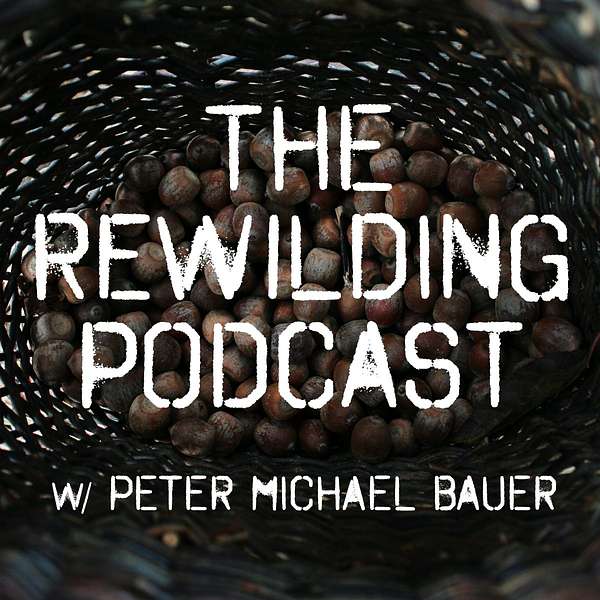
The Rewilding Podcast w/ Peter Michael Bauer
Are you looking at our society racked with disconnection, poor mental and physical health, social injustice, and the wanton destruction of the natural world and asking yourself, “What can I do?” Join experimental anthropologist Peter Michael Bauer as he converses with experts from many converging fields that help us craft cultures of resilience. Weaving together a range of topics from ecology to wilderness survival skills to permaculture, each episode deepens and expands your understanding of how to rewild yourself and your community.
The Rewilding Podcast w/ Peter Michael Bauer
Rewilding Cities Through Place-making Permaculture w/ Mark Lakeman
City landscapes are perhaps the most decimated and human centric habitats in today’s world. These landscapes are in need of thoughtful rewilding. Cities are some of the most domesticated places, but also positioned in some of the most historically fertile places. Cities were built where they are, because these places had access to a diverse array of resources. Many think rewilding means running away to the wilderness–but that’s not the case. For one, this is not a practical reality for most people. Two, because of their prime location and social capital, cities are both ripe for, and in desperate need of, rewilding. Permaculture, with its inspiration and core principles deriving from more regenerative sedentary, delayed-return societies such as indigenous horticulture, can be an effective tool for the urban rewilder. Using permaculture for place-making, becoming a part of your place, is a great way to start this journey. To talk with me about this today is Mark Lakeman.
Mark is the founder of the non-profit placemaking movement and organization known as The City Repair Project. He is also principal and design director of the community architecture and planning firm Communitecture. He is an urban place-maker and permaculture designer, community design facilitator, and an inspiring catalyst in his very active commitment to the emergence of sustainable cultural landscapes everywhere. Every design project he is involved with furthers the development of a beneficial vision for human and ecological communities. Whether this involves urban design and placemaking, permaculture and ecological building, encourages community interaction, or assists those who typically do not have access to design services, Mark’s leadership has benefited communities across the North American continent.
Notes:
Maya Forest Garden, by Anabel Ford and Ronald Nigh
A Pattern Language by Christopher Alexander
Photo by Greg Raisman